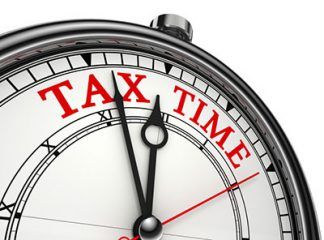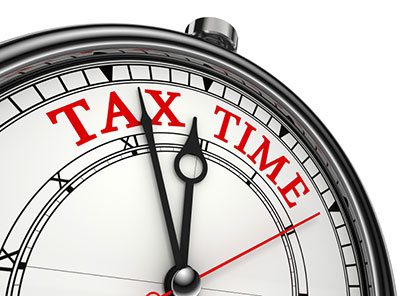Landlords across the country will be considering setting up a limited company for their buy-to-let businesses, in order to mitigate the forthcoming tax change – but is this a profitable option?
Portico London estate agent has put together some worked examples and has called in experts to share their thoughts on whether they believe landlords should set up a limited company to pay less tax.
Tax relief changes
Richard Blanco, a multi-property landlord, says: “According to NLA research, one in four landlords are considering setting up limited companies. This is largely because, as of April, landlords with mortgaged properties owned personally will no longer be able to get the higher rate tax relief on all of their finance costs. Within a corporate structure, however, landlords can continue to set their finance costs against rental profits.”
Currently, landlords are able to claim tax relief on their monthly mortgage interest repayments at the top level of tax that they pay of 45%. From April, however, mortgage interest tax relief is being restricted to 75%, and, by 2020/21, only basic rate tax relief will be able to be claimed, regardless of your income level. This restriction is only for individual landlords; limited companies can still benefit from the full interest deduction.
Why use a limited company?
Companies benefit from favourable tax treatment on profits.
If you hold an investment property personally, your rental income is combined with your other earnings, such as wages from your job, and then taxed as Income Tax up to 45% (depending on your tax bracket). If instead you hold a property in a limited company, your profits are liable for Corporation Tax at 20% – potentially halving your tax bill.
Of course, you’ll still pay tax on dividend when you draw profits from a company, but this is generally quite a tax-efficient method.
Worked example
Portico asked Accounts & Legal for a worked example for a high rate taxpayer, using a £500,000 buy-to-let property with a 4% yield, a 75% loan-to-value (LTV) interest-only mortgage, and an interest rate of 3%.

Should You Set Up a Limited Company for Your Buy-to-Let Business?
As you can see on the graph, a company takes home £1,798 more cash in 2017/18 at £6,485, compared with £4,688 as an individual.
Furthermore, the tax on dividends (Dividend Tax) is only paid if the cash is withdrawn from the company. If it is retained in the company and reinvested, the company would be an extra £715 better off again than the individual in terms of value.
By 2021, however, when the individual is only receiving basic rate tax relief on mortgage interest, there’s quite a big difference in take home cash. As a company, you’ll pay Corporation Tax rather than Income Tax on the profit you’re left with after deducting all mortgage interest, which will leave you with substantially more cash after tax. And, furthermore, the rate of Corporation Tax is set to decline by a further 1% to 17% in 2020, which will widen the gap even further.
So surely incorporating is the better option?
From the examples so far, a company structure certainly seems more tax efficient.
But not everyone will benefit from holding their properties in a limited company structure – especially not those who are already only paying the basic rate of tax (20%) or those without a mortgage.
The Managing Director of Accounts & Legal, Chris Conway, says: “For landlords without another source of income or who are not high rate taxpayers, retaining the rental property personally allows them to utilise their annual tax-free personal allowance and basic rate tax bands, which may well be more tax efficient.”
If you’re thinking of selling in the near future
Incorporating your property portfolio also may not be the best decision if you are thinking of selling in the near future, as any gain will be subject to Corporation Tax when you come to sell.
The distribution of the post-tax retained profits in the limited company will then be subject to either Income Tax or Capital Gains Tax (CGT), depending on how the funds are distributed, incurring an effective total rate of tax between 42-44.7% for a high rate taxpayer. An individual, on the other hand, will only suffer CGT on disposal of an investment property of up to 28%.
You also need to consider the cost of incorporating and ensuring the ongoing compliance of the new company. This includes filing annual accounts, an annual return at Companies House, and filing Corporation Tax returns with HM Revenue & Customs (HMRC), which typically costs £500-£1,000 per annum.
The cost of buy-to-let mortgages for limited companies
Blanco also makes a good point regarding the cost of commercial mortgages: “It’s important to remember that buy-to-let mortgage rates start from 1.59% with a £1,995 fee, and commercial rates start from 3.29% with a 1.25% fee, but are more typically close to 4%, so you would be paying considerably more interest if you incorporate.
“They are often repayment mortgages rather than interest-only too. And remember, whilst corporate structures might offer some tax benefits now, the rules can be changed at the whim of the Chancellor. You should put together a spreadsheet to calculate the difference in costs and make a decision based on actual figures and not a hunch.”
Richard has his own worked example:
“A £300,000 mortgage at 1.59% would cost £4,700 in interest per year and, at 4%, it would cost £12,000 per year. That results in £7,300 more per year. You might find that this extra cost is more than the additional tax you will pay under the new regime if you own the property personally.”
In conclusion, it depends on the individual landlord
Though holding your properties in a limited company structure can help guarantee your monthly tax bill, it may not benefit those who are lower rate taxpayers or those with only one rental property.
A better idea may be to cut your interest costs by remortgaging and getting an up-to-date rental valuation on your property. Your lender will therefore have to recalculate your LTV, and a lower LTV ensures a better interest rate and a larger selection of lenders.







